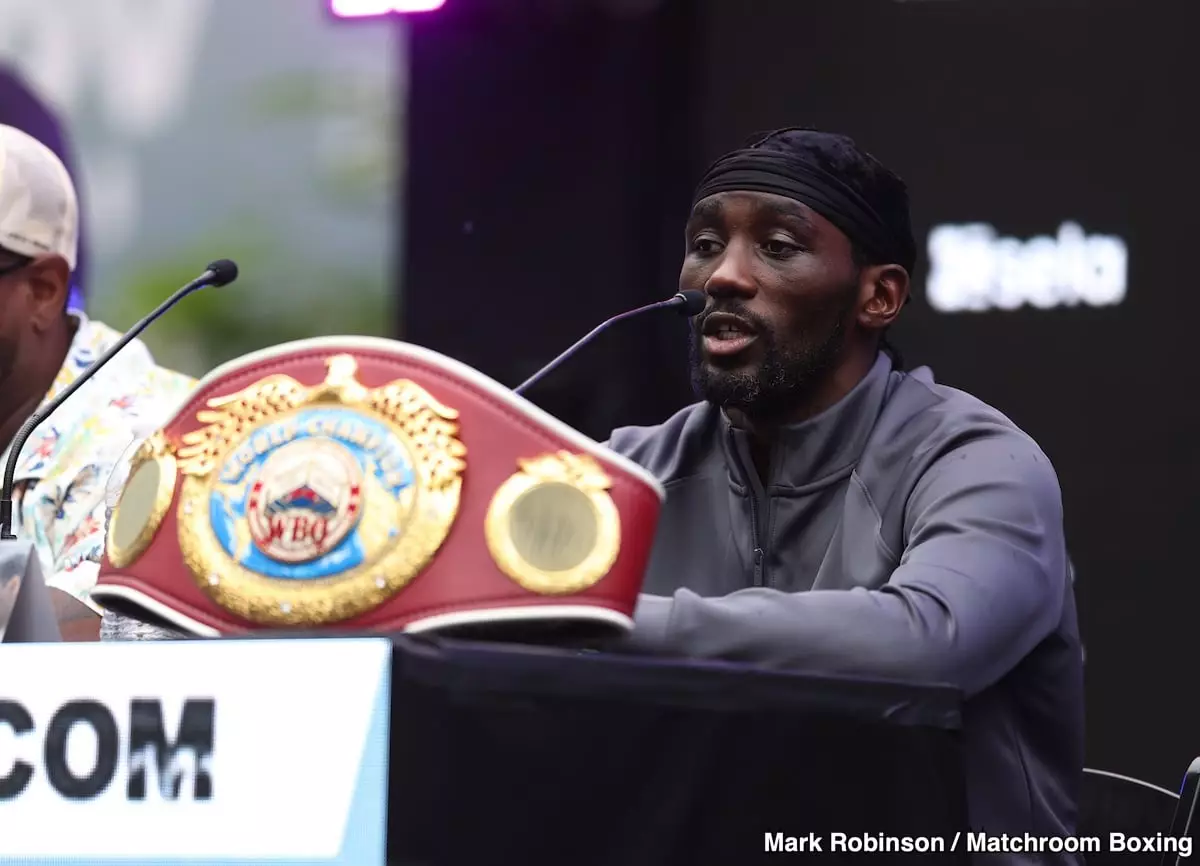Recently, a war of words erupted between two of boxing’s prominent figures, Terence Crawford and Canelo Alvarez. This discord is not merely a personal spat but reveals deeper issues within the sport, particularly regarding how legacy is constructed and measured in today’s boxing landscape. Crawford’s aura as a champion is being challenged by Alvarez’s critique — a commentary that seeks to redefine greatness within the sport.
Canelo Alvarez, a respected champion across multiple weight classes, voiced stark criticism of Crawford’s impressive yet contentious 41-0 record. Specifically, he noted that Crawford’s legacy is overstated because he has allegedly fought only one “good fighter” in his career — Errol Spence. This statement ignited considerable debate among fans and analysts alike. Many would argue that the essence of being a champion doesn’t just lie in having an undefeated record, but rather in the caliber of opponents faced throughout one’s career.
Alvarez’s perspective is rooted in the notion that surpassing the competition’s historical excellence is what solidifies a fighter’s legacy. With this in mind, it’s difficult to overlook that Crawford has often been assessed as having fought subpar competition outside of Spence, with his victories over figures viewed as less relevant to the championship narrative. Therefore, Alvarez’s assertion that Crawford has generated hype through selective matchmaking rather than fierce competition holds weight in many boxing circles.
Crawford’s ascent in boxing has been underpinned by careful promotional strategies that some argue have orchestrated a path to success devoid of true tests. Analyzing his opponents reveals a pattern in which he often stepped into the ring against fighters who were at best, lesser versions of themselves—be it due to age, weight issues, or previous injuries. The crux of the matter lies in the idea that the fight against Errol Spence was an outlier in Crawford’s career, rather than a reflection of consistent elite-level performances.
Alvarez’s critique brings to light a persistent issue in boxing where promoters and managers shield their prized fighters from potentially damaging bouts that could tarnish their marketability. Crawford, for instance, has been labeled a “One Win Wonder,” attracting attention primarily for the Spence bout. This creates a skewed perception of a fighter’s greatness and leaves little room for substantial accolades apart from marketed victories.
The Call for Courageous Matchmaking
If Crawford genuinely wishes to cement his legacy, it would benefit him to seek out more high-stakes match-ups against current boxing threats. Alvarez’s challenge encourages Crawford to look beyond his comfort zone and engage with fighters such as Jaron Ennis, Bakhram Murtazaliev, or even the winner of the coming bout between David Benavidez and David Morrell.
Furthermore, by moving up to 168 and actively chasing coveted fights, Crawford could not only build his résumé but redefine the trajectory of his career. Such bold moves would showcase his desire to earn respect in a sport that increasingly rewards fighters for their willingness to embrace risk and challenge themselves in pursuit of greatness.
As the conversation unfolds, the implications of Alvarez’s comments on Crawford’s career are significant. They serve as a poignant reminder that in a sport defined by competition and toughness, eight titles and a flawless record may not suffice to establish an enduring legacy. The onus is on Crawford not only to defend his current standing but to actively pursue opportunities that could elevate his status in the boxing hierarchy.
Thus, as more eyes turn toward the interactions between Crawford and Alvarez, it becomes clear that their exchanges reflect a broader dialogue about what it truly means to be acclaimed in boxing—a dialogue that will inevitably influence many careers moving forward. In the quest for legendary status, it appears that simply maintaining an unbeaten record may no longer carry the weight it once did; rather, the quality of opposition faced will play a formative role in how future generations view these athletes.


Leave a Reply